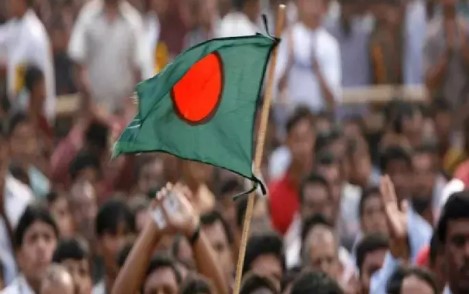In the chaotic hours leading up to Sheikh Hasina’s dramatic departure from Bangladesh, the former Prime Minister was engaged in intense meetings with top security officials at her official residence.
As per Prothom Alo, Hasina was determined not to resign and insisted that security forces intensify their crackdown on the widespread protests. However, security leaders warned that the unrest could not be suppressed through force alone.
The report reveals that Sheikh Hasina, the leader of the Awami League, summoned senior security and police officers to her residence as the death toll from the protests continued to rise.
Despite advisors urging her to consider ceding power to the Army, the 76-year-old Prime Minister refused. She demanded that the curfew be strictly enforced, even as protesters defied it, amassing in various parts of Dhaka.
During the meeting, Hasina questioned the effectiveness of the security response, pointing to images of protesters on police vehicles and criticising the lack of a stronger crackdown. She reminded the officers that their positions were due to her trust in them. Despite praising the police’s efforts, the police chief warned that the situation was beyond their control.
Efforts to persuade Hasina to resign included discussions with her sister, Rehana, who was unable to change her mind. Ultimately, it was Sheikh Hasina’s son, Sajeeb Wazed Joy, who convinced her to step down. Joy, who resides in the US, emphasized that his mother’s primary concern was her safety. “She wanted to stay, but we insisted it wasn’t safe,” he explained.
With the situation deteriorating and fears of an imminent storming of the Prime Minister’s residence, Sheikh Hasina was given just 45 minutes to prepare for her departure. Despite her desire to deliver a final speech, there was no time. Accompanied by Rehana, she left for Bangabhaban, the President’s residence, to finalise her resignation.
At around 2:30 pm, Sheikh Hasina boarded a military aircraft, marking the end of her 15-year tenure. Her departure signifies a major shift in Bangladeshi politics, coinciding with the vandalism of her father Sheikh Mujibur Rahman’s statues. Once a symbol of Bangladesh’s struggle for independence, Rahman’s legacy has now been overshadowed by the contentious political climate surrounding his daughter.
The protests began over a quota system reserving 30 per cent of government jobs for relatives of those who fought in Bangladesh’s 1971 liberation war. Critics argued this system favoured Awami League supporters, advocating for a merit-based system instead. Hasina’s controversial remark questioning who should benefit from quotas further inflamed tensions, leading to severe unrest.
The latest wave of protests was triggered by a high court ruling that declared the 2018 cancellation of quotas for freedom fighters’ descendants illegal. Although the Supreme Court reinstated the quota system, it did not quell the dissent. The unrest reflects ongoing dissatisfaction with reservation policies and the government’s handling of the issue.

















